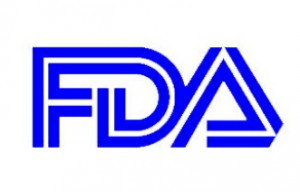Consumer and public health groups, including the Consumer Federation of America, are urging the FDA to withdraw approval of ortho-phthalate food additives used in food packaging and food handling equipment. The groups filed a citizen’s petition with the government. Those chemicals are used as plasticizers, binders, coating agents, defoamers, gasket closures, and slimicide agents on machines used to process and package food.
 Any chemicals that are “reasonably expected” to get into food from their use in materials are considered food additives. The government lets food producers use these compounds in cellophane, paper, paperboard, and plastics that come into contact with food.
Any chemicals that are “reasonably expected” to get into food from their use in materials are considered food additives. The government lets food producers use these compounds in cellophane, paper, paperboard, and plastics that come into contact with food.
Studies have linked these compounds to developmental, reproductive, and endocrine health problems. In fact, every ortho-phthalate that has been studied in the past few years has been found risky. These chemicals cause lower IQ in young children and malformations of the male genital tract.
More than half of the ortho-phthalate chemicals approved by the FDA do not have any published safety data. The Consumer Products Safety Commission wants to ban FDA approved ortho-phthalates from use in children’s toys, pacifiers, teething rings, and other products.
This petition builds on a food additive petition submitted earlier in the month. In response to the petition, FDA has agreed to consider withdrawing its approval of 30 of these types of additives, but the agency said it couldn’t take some actions – such as banning a chemical’s use in a food additive – in response to a food additive petition. The government said that the groups should file a citizen’s petition asking for the ban, so that is what was done.
Other agencies who signed the petition include the Natural Resources Defense Council, Center for Science in the Public Interest, Center for Environmental Health, Center for food Safety, Clean Water Action, Earthjustice, Environmental Defense Fund, Improving Kids’ Environment, and Learning Disabilities Association of America. The FDA has stated in a letter sent to Consumer Federation that the Office of Food Additive Safety will try to complete a scientific review within 90 days, but may extend their response for an additional 90 days.
In that 180 days, FDA will determine if there is no longer a “reasonable certainty of no harm,” which is the legal standard of safety for food additives and chemicals on the GRAS (generally regarded as safe) list, according to Environmental Defense Fund. If there is not enough research data for a chemical, since the FDA removed the agency’s approval of perfluroinated compounds in January 2016, FDA must assume that the chemical has toxicity based on that precedent.




